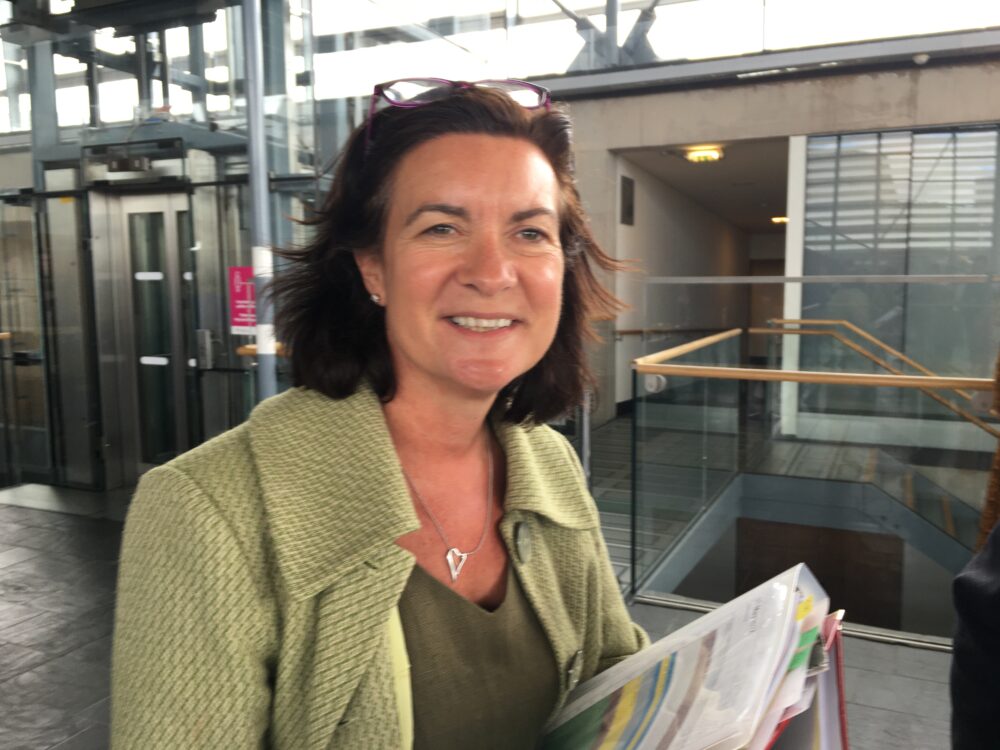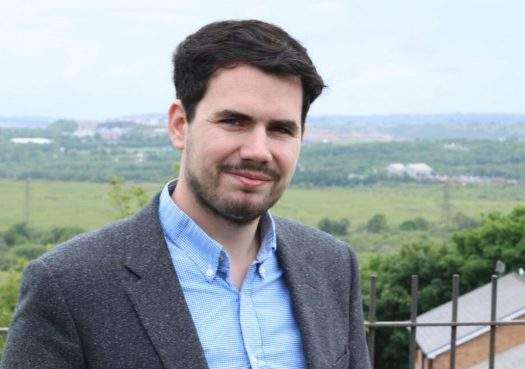Funding for innovative research into improved treatments, including cancer immune therapies or vaccines and game-changing weight loss medication and technologies, to accelerate their development and rollout
Prime Minister, Health and Social Care Secretary and Business Secretary will meet with key industry experts, global CEOs and NHS leaders to leverage further investment and ensure NHS patients benefit from cutting-edge new treatments
Builds on £1 billion investment since publication of Life Sciences Vision and delivers on commitments to cement the UK as a life sciences superpower
NHS patients are set to benefit from cutting-edge new treatments and technologies as the government introduces a Vaccine Taskforce style approach to tackling some of the biggest public health challenges facing the UK.
The government has today announced over £113 million to fund research into four healthcare missions – cancer, obesity, mental health and addiction – to unlock the next generation of medicines and diagnostics to save lives, transform patient care and ensure UK patients are the first to benefit from medical breakthroughs.
Building on the Vaccine Taskforce model which led to one of the most successful vaccine roll outs in the world and ensured millions got a Covid jab, the government will continue to harness world-leading research expertise, remove unnecessary bureaucracy, strengthen partnerships and support the new healthcare challenges.
Since the Life Sciences Vision was first launched it attracted £1 billion investment to the UK and this further research funding is expected to gain investment from leading global companies.
In addition, tackling these healthcare challenges could save the NHS and the economy billions of pounds – it is estimated obesity costs the NHS £6.1 billion a year and poor mental health costs the economy £118 billion a year.
The Prime Minister, Health and Social Care Secretary and Business Secretary will today meet with key industry figures, including global CEOs, NHS leaders and industry experts at the Life Sciences Council to discuss how their support will deliver life-changing innovations to patients, boost NHS efficiency and ensure the UK remains a global life sciences superpower.
The Prime Minister, Rishi Sunak, said:
“The NHS faces real pressures, which is why we are investing over £100 million in the technologies and medicines of the future to address some of the biggest public health challenges facing our country.
“This funding will improve outcomes for patients, ease existing pressures on the system and ensure that we are amongst the first to benefit from medical breakthroughs. Importantly it will also help save the NHS millions of pounds that could otherwise be spent on patient care – for example by tackling obesity which costs the health service over £6 billion annually.
“It is hugely welcome too that the highly successful Vaccine Taskforce, which procured millions of life-saving vaccines in record time during the pandemic, will now become a blueprint for how we harness the best talent and expertise from around the world and drive investment in research and development”.
Health and Social Care Secretary Steve Barclay said:
“Conditions such as cancer and obesity prevent people leading long, healthy lives and cost the NHS billions of pounds every year.
“We’re leading the way in cutting-edge research which can find new ways to speed up diagnosis, enhance treatments and ensure a better quality of life for patients – both now and in the future.
“By harnessing the same spirit of innovation that delivered the vaccine rollout and working hand in hand with the NHS, industry and healthcare experts.
“We’re building a stronger, healthier NHS with record numbers of staff and record funding, to give people the security of knowing it will be there for them when they need it.”
The research will focus on the top public health priorities, as identified by the NHS:
Cancer: £22.5 million will go into cancer research to develop new immune-based cancer therapies, including cancer vaccines, which are targeted to a patient’s specific cancer. Funding will also support the development of technologies that enable earlier, more effective cancer diagnosis. This will support progress towards the NHS Long Term Plan ambition to diagnose three-quarters of cancers at Stages 1 or 2 by 2028.
Mental health: £40.2 million for research into mental health to develop and introduce digital technologies to support patients. This could include technology allowing patients to monitor their mental health at home and instantly report to their doctor if in need of help. Funding will be spent in the Midlands and the North to bolster services and ensure people across the UK can access support, helping level up health across the country. With one in four adults experiencing mental illness, poor mental health costs the economy £118 billion a year.
Obesity: £20 million to trial how best to deliver new medicines and technologies for people living with obesity, particularly in deprived communities across the UK. This will help new medicines coming to market – some of which have the potential to reduce a person’s weight by more than 20% – to better support people to achieve a healthy weight. The mission will explore how these medicines can be combined with cutting-edge technologies and digital tools to improve long-term health outcomes. Obesity costs the NHS £6.1 billion a year and helping people lose weight and lead healthier lifestyles could lead to significant savings.
Addiction: £30.5 million, including funds contributed through collaboration with Scottish Government, will be deployed to accelerate the development of new technologies to prevent deaths from overdoses across the UK. This could include wearable devices which can detect the onset of a drug overdose and signal to first responders to prevent deaths, and better support people with substance use disorders to manage and combat their addiction. Funding will also help grow research capacity and capability across the UK to better understand addiction and the most effective ways to treat it as a chronic healthcare condition.
The new funding follows the launch of the dementia mission in August 2022 in memory of the late Dame Barbara Windsor – backed by £95 million – to develop innovative research tools and boost the number and speed of clinical trials in dementia and neurodegeneration. This contributes to the commitment to double funding for dementia research to £160 million a year by 2024/25.
In line with the Vaccines Taskforce, the four healthcare missions will be led by an independent chair – an expert in that field – to accelerate the development and introduction of the latest treatments and technology into the NHS, as well as drive collaboration across partners. This will not only ensure better care for patients, but also improve the accuracy of diagnosis and free up clinician time, helping tackle the Covid backlog and ease pressure on health services.
The chairs will be appointed by an expert panel dedicated to each mission – this includes Kate Bingham who headed up the Vaccine Taskforce. The process will be completed soon so the research projects can get underway as quickly as possible.
The government is committed to ensuring patients benefit from the latest treatments and NHS England has also announced today that that around 9,000 men with one of the most advanced forms of prostate cancer will be eligible for a new life-extending treatment as the NHS becomes the first in Europe to roll out darolutamide to patients whose prostate cancer has spread to other parts of the body. The deal was approved through Project Orbis, an international collaboration with top regulators around the world which enables quicker patient access to breakthrough cancer medicines.
Today also sees Innovate UK launch a new £30 million fund to advance life-changing cancer therapeutics delivered through the Biomedical Catalyst (BMC) programme. This new programme directly supports the UK government’s cancer mission, combining expertise in immuno-oncology and the vaccine capabilities developed throughout the pandemic.
Minister of State for Health Will Quince said:
“We have made immense strides in health research over the past year and it’s crucial we continue to harness this enthusiasm and innovation.
“These new healthcare missions commit to putting the lessons we’ve learnt into action to drive the UK forwards as a life sciences superpower.
“By bottling up this scientific brilliance our Life Sciences Vision puts this innovation at the heart of our health service, helping to solve major health challenges – such as cancer and obesity – and enabling the NHS to continue delivering world class care.”
Business Secretary Grant Shapps said:
“The UK is a leading light in life sciences and more generally a science superpower. This funding builds on this reputation to create jobs and growth while serving as a catalyst for an avalanche of additional private investment.
“These healthcare missions will drive innovations with the potential to transform the landscape of healthcare and save millions of lives, by tackling some of greatest health issues facing Britain and indeed the world.”
Eluned Morgan MS, Minister for Health and Social Services Welsh Government said:
“Last year, the UK government set out a bold and ambitious vision for life sciences that promises to deliver better healthcare outcomes for all patients across the UK. Wales has a proven track record in many of the key areas identified – dementia, mental health, genomics, cancer research and linked data – all of which play a very significant role in improving clinical outcomes and driving innovation both nationally and around the world. To maximise the potential of the Life Science agenda for the UK it is important that any investment is fully committed to delivering on ‘levelling up’ and it is incumbent upon all partners to work together so that our common objectives are realised across the four nations.”
Professor Dame Anna Dominiczak, Chief Scientist for Health in Scotland said:
“The missions launched today cover conditions that have a huge impact on people’s lives. Bringing together academia, industry and the NHS offers exciting possibilities for the development of new approaches to their prevention, diagnosis and treatment.”
Drugs Policy Scottish Minister Angela Constance said:
“In Scotland, we are experiencing an ongoing public health crisis of drug-related deaths, and finding solutions in innovation and new technology to inform future strategy is one way in which we can help prevent deaths and improve lives.
“I therefore welcome this collaboration between the Scottish Government’s Chief Scientist’s Office and the UK Government Office for Life Sciences which focusses on rapid detection, response and intervention to potential overdoses. This ensures immediate action, helping people who use drugs and their support networks to work together to save lives.”
NHS chief executive, Amanda Pritchard said:
“We have already seen the incredible ways that new technology and innovation can transform NHS care and the lives of patients across the country – from glucose monitors for people living with diabetes, laser therapy for those with epilepsy to genetic life-saving testing for severely ill children and babies.
“Just today, we fast tracked a new drug deal for men with prostate cancer that can boost their survival – showing that the NHS is already at the forefront of delivering the latest treatments for patients.
“Working with partners, we want to build on this work even further so we can work to tackle the country’s biggest healthcare challenges.”
Extended supportive quotes
Dr Ian Walker, Executive Director of Policy, Information and Communications at Cancer Research UK said:
“The Cancer Mission is an important step to put research at the heart of the UK’s efforts to beat cancer. It is great to see funding committed to accelerate research that shows promise in detecting and diagnosing cancer earlier, and treating cancer more precisely.
“No-one can beat cancer alone – the Cancer Mission must bring together a wide range of perspectives to ensure it delivers for patients. We look forward to working with government to bring in expertise from our research community, to ensure that the Mission achieves its ambitions.”
Sarah Le Brocq – Founder and Director, All About Obesity said:
“We are delighted that the government are investing in obesity and launching this healthcare mission today, this is an exciting time for the future of obesity treatment and care for those living with obesity.
“At All About Obesity part of our strategy is that ‘we aim to bring the experience of those living with obesity to the fore, to better understand obesity through research, improve access to services and treatment options’, being a stakeholder on the Obesity Healthcare Mission is huge honour and opportunity for us to play a part in changing the future of health outcomes for people living with obesity.”
Dr. Shahzad Malik, Chair of MQ Mental Health Research and General Partner, Advent Life Sciences said:
“This solutions focused approach from the OLS is very encouraging. Historically only 3.9% of mental health research funding has been focused on preventions so I am very pleased that the mental health mission will be focusing on using technology to prevent symptoms as well as finding innovative new treatments to transform lives.”
Lea Milligan, CEO of MQ Mental Health Research said:
“This new investment into some of the country’s greatest health challenges is precisely what’s needed to ensure the most vulnerable in society are supported. My hope is that this targeted investment into mental health research puts the voice of people with lived experience of mental health at the core, catalyses partnership with new industries and technologies and ultimately gets new evidence led interventions into the hands of the frontline services and NHS staff. I am deeply encouraged by the work OLS has done to listen to people from across the spectrum of mental health research and the public; responding with a focused and timely investment to transform the future of mental health through research.”
Asha Iqbal, Mental health Campaigner and founder of Generation Reform said:
“The new Mental Health Mission is very exciting. What we need now, more than ever before, is solutions for the 1 in 4 of us who are impacted by mental illness. I’m really pleased to see a focus on children and young peoples mental health and on how we can use technology to manage and prevent symptoms. It feels like we are edging ever closer into the golden age of mental health research and I am excited to see what this new initiative can bring.”
Oliver Standing, Director Collective Voice said:
“Following the publication of ‘From Harm to Hope’ the selection of Addiction as one of the Government’s new Missions is most welcome. Whilst many effective interventions do currently exist to reduce harm and develop recovery, research into new approaches is needed. In funding research on the next generation of interventions it is essential the Mission builds its work around the experiences of people who use drugs and looks at the full spectrum of approaches. Collective Voice and its partner organisations look forward to working with the new Mission chair and the Office for Life Sciences to ensure the success of the project.”
Dr Susan Kohlhaas, Director of Research at Alzheimer’s Research UK, said:
“We’re delighted to see the Government recommit to delivering the Dame Barbara Windsor Dementia Mission which contributes to its commitment to double dementia research funding to £160m by 2024/25.
“Decades of painstaking research have brought new dementia treatments within reach, and we’re now on the cusp of some incredible breakthroughs for people with dementia. The Dementia Mission is a huge opportunity to build on this momentum and will mean the UK can continue to play a world-leading role in bringing forward the changes that people with dementia desperately need.”
Prof Bart De Strooper, Director of the UK Dementia Research Institute, said:
“Dementia presents a formidable scientific challenge, but today’s announcement confirms the UK is ready to meet it. The government’s Dementia Mission – alongside their unprecedented investment in 2017 to create the UK Dementia Research institute – will solidify the UK as the best place in the world to conduct dementia research.
“This is an investment in our future: UK science is essential for growth, economic stability, and our health. UK DRI scientists are already making huge strides to fill the knowledge gap in dementia and find desperately needed treatments. The Dementia Mission will bring us another step closer.”
Scott Mitchell, Ambassador at Alzheimer’s Research UK and husband of the late Dame Barbara Windsor, said:
“Since experiencing the devastating impact that dementia has on people when I lost my dear wife, Barbara, to this cruel disease I have campaigned tirelessly for dementia research to be a government priority. I’m pleased action is being taken to accelerate the development of new treatments.
“I know Barbara would be over the moon to have the Mission named in her honour and that her legacy will hopefully help mean people in the future will be free from the heartbreak of dementia.”
Fiona Carragher, Director of Research and Influencing at Alzheimer’s Society, said:
“We share the government’s view that now is the moment for an injection of energy, focus and finances to transform dementia research and the government’s recommitment today to the Dame Barbara Windsor Dementia Mission is hugely welcome news.
“Research will beat dementia and investment and collaboration such as this is the only way that we can find life-changing treatments, develop more accurate, quicker diagnostic techniques and improve care for a devastating condition.”
Please donate here: Support Carmarthenshire News Online Thank you for supporting independent journalism and contributing to the future of local news in Carmarthenshire. Carmarthenshire News Online has been dedicated to providing unbiased and trustworthy news, free from commercial or political influence. By donating as little as £1, you can help ensure the continuation of this important source of information for the community. Your contribution will have a significant impact on the sustainability of independent journalism. If you're looking to enhance your brand's visibility, we also offer advertising opportunities on our Livestream and podcasts. Our special offers provide excellent value for reaching our engaged audience. To learn more about these opportunities and to discuss your advertising needs, please feel free to call or text us at 07308598604. Thank you again for your support, and together we can ensure the availability of quality local news for Carmarthenshire and beyond.
Please donate here: Support Carmarthenshire News Online








